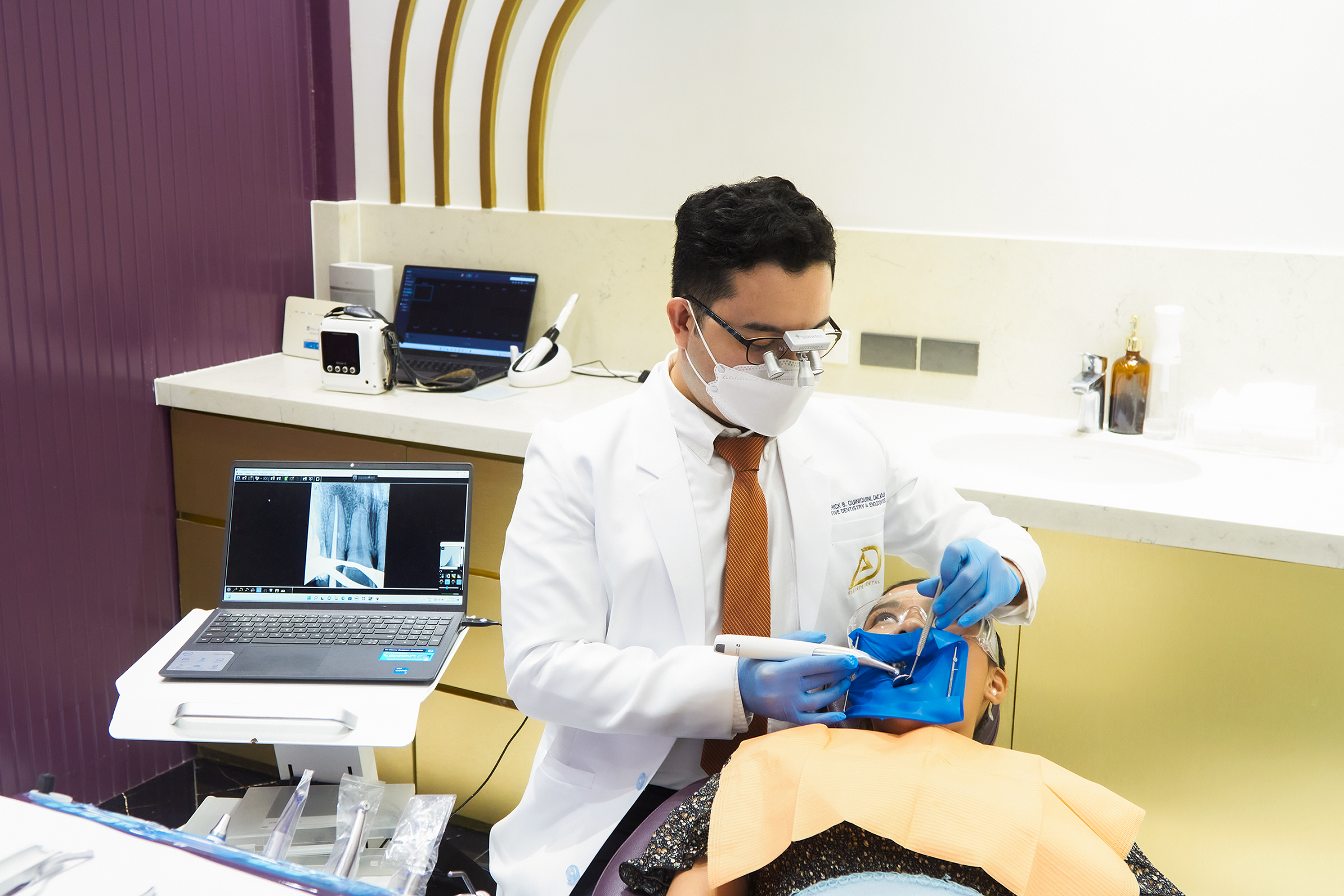Root Canal Treatment

Root Canal
Treatment
is the removal of the infected or irritated nerve tissue that lies within the root of the tooth. It is this infected pulp tissue that causes an eventual abscess.
With the proper restoration the tooth should last as long as your other teeth and can even be used as an anchor tooth for a partial denture or cemented bridge.
The success rates for root canal therapy have been reported to be as high as 90%.
Procedure for Root Canal Treatment
Root canal treatment is the removal of the infected or irritated nerve tissue that lies within the root of the tooth. Using local anesthesia, the patient can experience little or no pain during the entire procedure.
- Access Preparation
The first step in a root canal is to obtain access to the nerve. This is accomplished by establishing a small access opening in the top of the tooth. It will be done under a local anesthesia. - Pulp Removal
The number of the root canals is determined during pulp removal. A series of files are used to remove the infected pulps and reach the the root canal. - Canal Shaping
At the same visit, the canal where the nerve is located will be reshaped and prepared to accept intracanal medicament. The number of visits necessary to complete your root canal will depend upon several factors including the number of canals in the tooth, the infected state of the nerve and the complexity of the procedure. - Root Canal Filling
The final step in your root canal will be the sealing of the root canal with a rubber like material, called gutta percha This is done in order to prevent possible future infection. - Follow-up Treatment
The tooth will then possibly need a post and core and a crown in order to re-establish normal form and function. It is recommended to crown the tooth after 1 -2 weeks. Then, after 6 months , a follow up consultation and x-ray to ensure success of management.
What You Need To Know
About Root Canal Treatment
Some indications of the need for root canal treatment may be:
Pain When Biting
Spontaneous pain or throbbing while biting.
Sensitivity
Sensitivity that lingers to hot and cold drinks and foods.
Abscess (Infection)
Severe decay or an injury that creates an abscess (infection) in the tooth.
Swelling or Fistula
Pimple on the gums.
Dead Tooth
Infected necrotic nerve that caused pain before.
- GENERAL DENTISTRY
- COSMETIC DENTISTRY
- ORTHODONTICS
- ORAL SURGERY
- PEDIATRIC DENTISTRY
- PROSTHODONTICS
- ENDODONTICS
- PERIODONTICS
- DIGITAL X-RAYS



